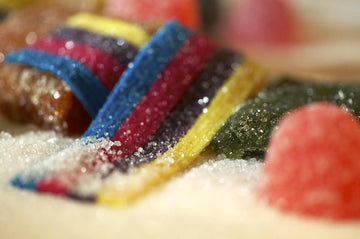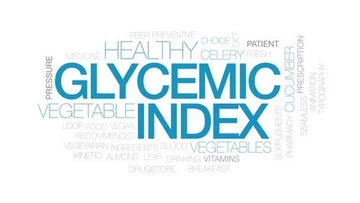Introduction:
In the quest for healthier options, many food products are now labeled "sugar-free" or "no added sugar," achieved through the use of alternative sweeteners like sugar alcohols. Sugar alcohols, also known as polyols, are a type of carbohydrate that provide sweetness without the caloric load of regular sugar. They are widely used as sugar substitutes in various processed foods, including cookies, soft drinks, and chewing gum.
What are Sugar Alcohols?
Sugar alcohols have both sugar and alcohol characteristics, although they do not have the same effects as alcoholic beverages. While some sugar alcohols are found naturally in small amounts in fruits and vegetables, most are manufactured. They typically provide between 1.5 to 3 calories per gram, which is less than the 4 calories per gram found in regular sugar.
Approved Sugar Alcohols in the USA:
There are eight sugar alcohols currently approved for use in the United States, including lactitol, sorbitol, erythritol, hydrogenated starch hydrolysates, isomalt, mannitol, maltitol, and xylitol. Among them, xylitol, erythritol, and maltitol offer a taste profile similar to natural sugar. Erythritol, in particular, stands out due to its minimal impact on blood sugar levels, its safety for pets (unlike xylitol), and its reduced potential for causing digestive issues compared to other sugar alcohols.
Differences Between Sugar and Sugar Alcohols:
Sugar alcohols share structural similarities with sugar but have a hydroxyl group instead of an aldehyde group. When we consume regular sugar, it is broken down into glucose, leading to a rise in blood sugar levels, triggering insulin release for energy utilization. In contrast, sugar alcohols pass through the gastrointestinal tract with limited absorption and are fermented by gut bacteria in the large intestine. This fermentation can cause bloating and digestive discomfort, especially in individuals with irritable bowel syndrome (IBS).
Benefits of Sugar Alcohols:
Reduced Blood Sugar Spikes: Sugar alcohols have a low glycemic index and cause minimal spikes in blood sugar levels.
Dental Health: Unlike regular sugar, sugar alcohols do not contribute to tooth decay as they cannot be fermented by oral bacteria. They are often used in toothpaste and chewing gums to promote dental health.
Gut Microbiome Support: Some sugar alcohols, such as xylitol, act as prebiotics, supporting the growth of beneficial gut bacteria.
Lower Caloric Content: Sugar alcohols provide sweetness with fewer calories than regular sugar, making them helpful for weight management.
Adverse Effects of Sugar Alcohols:
While moderate consumption of sugar alcohols is generally considered safe, they can cause gastrointestinal discomfort. Poor absorption and osmosis lead to bloating and diarrhea, and their fermentation by gut bacteria produces gas, exacerbating discomfort. Erythritol tends to cause fewer digestive problems due to its smaller molecule size, facilitating better absorption.
Conclusion:
Limiting all forms of sugar is crucial for maintaining metabolic health. Sugar alcohols, when consumed in moderation (up to 10-15 g/day), can be safe and beneficial alternatives to regular sugar. However, excessive intake can lead to unwanted side effects, particularly in individuals with IBS. Other natural sweeteners, such as yacón syrup and monk fruit, may be considered for those who experience digestive issues with sugar alcohols. Ultimately, focusing on reducing sweet cravings and opting for whole, unprocessed foods remains the best approach for overall health.





